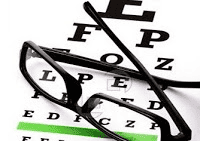INFANTS: All babies should receive an eye exam soon after birth. It’s also recommended to receive another exam between ages 6 to 12 months.
PRESCHOOL: At age 3, it’s important for children to receive a visual acuity test. The test results can show lazy eye or refractive errors, like nearsightedness, farsightedness or astigmatism.
SCHOOL AGE: Upon entering the 1st grade, another eye exam should be performed. As your child gets older, if any suspected vision issues or problems come up, then another exam should be performed. In this age group, nearsightedness is most common which can be corrected with eyeglasses or contact lenses, depending on the child’s age.
TEENAGERS & EARLY 20s: Teenagers with corrective lenses should receive an annual eye exam in order to determine changes in prescription and to detect any other issues. By the time people reach their early 20’s, vision development will typically remain steady. For this age group it’s also important to remember to protect eyes during activities and playing sports.
ADULTS 25 to 40: Vision changes little at this age, so this is the recommended time for LASIK eye surgery. For those without prescription lenses or a family history of eye disease, it’s best to receive at least one complete eye exam in your 20s and two complete exams in your 30s. During pregnancy, women may have vision fluctuations.
ADULTS 40 to 65: This is a time when many eye diseases may begin to emerge. At age 40, a comprehensive eye exam should be scheduled to check for any signs of age-related macular degeneration, cataracts, glaucoma and other problems. You should continue to schedule exams every two years or more often based on feedback from your ophthalmologist about any problems your eyes have.
65 AND UP: By age 65, 1 in 3 Americans will have a vision-impairing eye disease such as glaucoma and cataracts. Preventive eye exams should be an important annual appointment to help find any issues or continue treatment of any known problems as your ophthalmologist recommends. Vision may be saved or prolonged if eye disease is detected early on.
Source: American Academy of Ophthalmology

